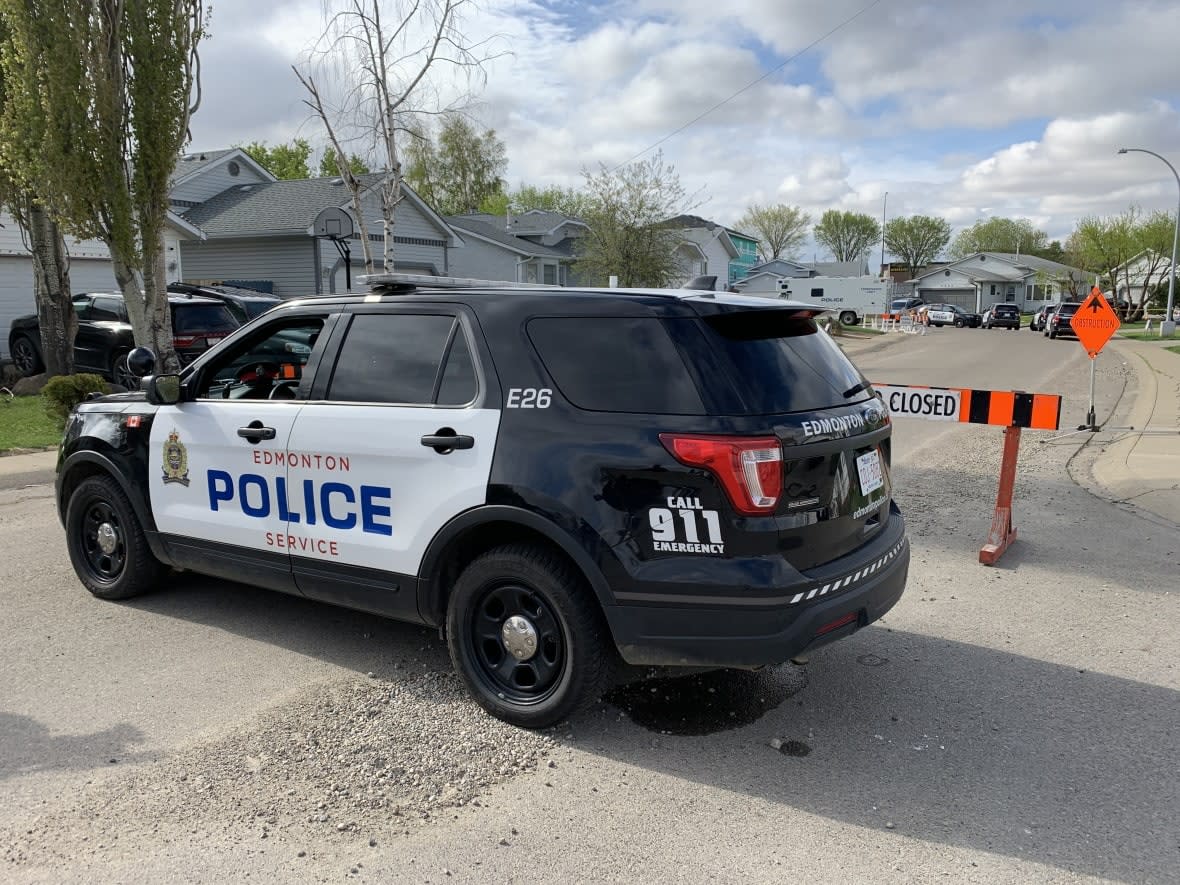Crime: Find out where parties stand before Alberta votes

Pledging to be tough on crime is an old standard in the election songbook. As Alberta's largest cities grapple with what police describe as an upswing in violent crime, the provincial government has repeatedly stepped in with measures that at least some municipal leaders feel are an overstep.
Worry about safety on transit and in other public spaces has fuelled calls for an increase in police funding and resources from some quarters, while others insist that we can't talk about crime without talking about social issues.
Critics of a "more boots on the ground" approach to crime cite a lack of affordable housing and lack of meaningful support for people dealing with addictions and mental health issues as the real keys to tackling violence and disorder.
Throw in an ongoing and so far unpopular proposal to replace RCMP with a provincial police force, evergreen worries about a lack of resources to respond to rural crime and heated debates about police funding – and the issue becomes even thornier.
Parties hoping to win over Albertans will have to balance demands for increased community safety with greater public awareness about the role social issues play in crime.
— Analysis from Paige Parsons, CBC News
Below is a snapshot of party announcements on crime in recent weeks. The parties included are those that have previously elected an MLA or had 44 registered candidates by nomination day on May 11.
— Party announcements compiled by Kelsea Arnett, CBC News
Alberta Liberal Party
Support law enforcement and invest in anti-poverty measures.
Spend $600 million more in mental health and addictions.
Reverse changes to municipal policing that saw money for municipal policing diverted to the province.
Increase support for community watch groups.
Create a $100 refundable tax credit for home security systems.
Tackle root causes of crime, including poverty, mental health and addictions.
Create mental health and drug courts.
Spend $5 million for the regional victims of fraud.
Alberta New Democratic Party
Restore municipal police funding and invest in integrated teams to make urban transit safe while addressing poverty, homelessness, mental health and addictions.
Address root causes of social disorder by ensuring properly funded police forces are working together as a team with community and social service providers, specifically in the downtown cores of Calgary and Edmonton.
Greater access to affordable housing, adequate emergency shelter space and spaces with addiction and mental health services.
Work with municipalities to hire 150 police officers in Calgary, Edmonton, Lethbridge, Red Deer, St. Albert, Sherwood Park, Spruce Grove, Fort McMurray and elsewhere; and pair these officers with 150 social workers, mental health workers, addictions counsellors and community outreach workers as a part of integrated teams.
Restore $32 million in municipal police funding.
Direct resources to current teams, like 911/211 co-location.
Indigenous teams and culturally appropriate and trauma informed outreach (DOAP in Calgary and COTT in Edmonton).
Support civilian oversight and community liaisons to ensure good metrics, reporting and community involvement.
Support and grow partnerships with ethnic and multicultural communities and social welfare providers.
Keep the RCMP and invest in specialized Rural Crime Reduction Units with an initial $10 million to fulfil this commitment.
Hire more probation officers and fund more post-release programs.
Establish long-term agreements with municipalities to support stable and predictable police funding, integrated police-community service teams, Indigenous partnerships and provincial accountability for services such as affordable housing.
Establish a Hate Crimes Unit and community liaison programs.
Alberta Party
Increase community policing.
Improve access to mental health and addiction services.
Invest in youth programs and education.
The Alberta Party would keep the RCMP in Alberta.
Increase police presence and response times.
Promote community-based crime prevention programs.
Invest in surveillance technology and equipment.
United Conservative Party of Alberta
Safe Streets Action Plan, which will utilize 24/7 ankle bracelet monitoring for dangerous (violent and sexual) offenders out on bail and deploy sheriffs to monitor them.
Provide further options for courts to impose electronic monitoring as a condition of bail.
Add 100 police officers to Edmonton and Calgary to address chronic and worsening crime issues, particularly in the downtown core and on transit.
Extend downtown sheriff redeployment program until at least the end of 2023.
Expand use of sheriffs in the 24/7 bail monitoring process (monitor high risk offenders released on bail).
Anti-fentanyl and illegal gun trafficking teams to target smugglers bringing deadly drugs and illegal weapons to Alberta.
Alberta sheriff-led teams to combat gun smuggling and fentanyl trafficking at the border, costing $6 million over two years.
Increase funding for Alberta Law Enforcement Response Team (ALERT) to target and suppress gang violence, expand provincial Cyber Crime Unit and Provincial DNA Lab, and increase monitoring of scrap metal dealers and gang connections to reduce catalytic converter theft.
Make it easier for people to know the whereabouts of violent and sexual offenders.
Invest in women's shelters and sexual assault counselling/centres over the next four years. $10 million to support women's shelters, $10 million for sexual assault counselling.
Inform Albertans that Clare's Law enables them to learn whether their partner has any history of domestic assault or sex crimes through a two-year, $3 million advertising campaign.
Will build over 700 new publicly funded addiction treatment beds across 11 new treatment centres called recovery communities. Four of these new recovery communities will be built in partnership with First Nations including the Kainai Nation, the Enoch Cree Nation, the Siksika Nation, and the Tsuut'ina Nation.
Build five new 75-bed mental wellness centres. These new centres will add a total of 375 inpatient mental health beds across the province.


